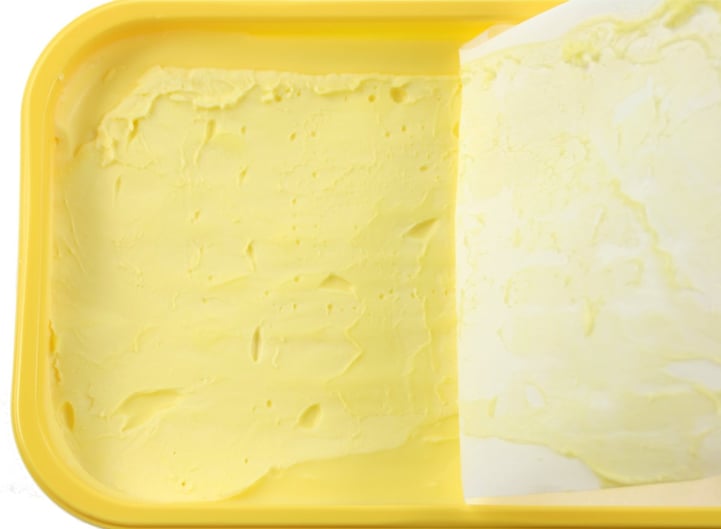
The U.S. Food and Drug Administration (FDA) made an official statement on June 16th, 2016 that partially hydrogenated oils (PHOs) are no longer “generally recognized as safe” or GRAS for use in human food.
This will mean a lot to food manufacturers and restaurants. At a very basic level, all food ingredients must be GRAS to be used in food production, which means that all producers will need to transition to other alternative healthier fats.
This statement comes as a result of their many years of findings on trans fats, a type of fat commonly found in partially hydrogenated oils.
“Based on a thorough review of the scientific evidence, the U.S. Food and Drug Administration today finalized its determination that partially hydrogenated oils (PHOs), the primary dietary source of artificial trans fat in processed foods, are not “generally recognized as safe” or GRAS for use in human food. Food manufacturers will have three years to remove PHOs from products.” Source
Trans fats are widely known to raise bad cholesterol levels and raise one’s risk of cardiovascular disease. In an effort to increase the health of our general population, they have made this mandate to positively affect we’re consuming by steering the food manufacturing industry in the right direction.
“The FDA’s action on this major source of artificial trans fat demonstrates the agency’s commitment to the heart health of all Americans," said FDA's Acting Commissioner Stephen Ostroff, M.D. "This action is expected to reduce coronary heart disease and prevent thousands of fatal heart attacks every year.” Source
In fact, some estimate that if all of the trans fats were removed from American diets and replaced by healthy fats, some 10,000 lives each year would be saved. Source
How This Affects Food Manufacturers
This statement has a wide spread affect for food manufacturers, especially those that are still using partially hydrogenated oils. They will have 3 years to swap out their PHOs to alternative oils that are healthier.
“The FDA has set a compliance period of three years. This will allow companies to either reformulate products without PHOs and/or petition the FDA to permit specific uses of PHOs… Many companies have already been working to remove PHOs from processed foods and the FDA anticipates that many may eliminate them ahead of the three-year compliance date.” Source
What Is A Partially Hydrogenated Oil?
A partially hydrogenated oil is a liquid oil that’s been turned into a solid, for example, margarine. This process has been done to oils because it helps extend the shelf life and allows manufacturers to work with a solid fat (often preferred by bakers and snack makers).
Partially hydrogenated oils have been used to replace butter, lard, palm oil, coconut oil,
and other “hard” fats in many processed foods. Common partially hydrogenated oils include:
- Partially Hydrogenated Soybean Oil
- Partially Hydrogenated Cottonseed Oil
How Is Partially Hydrogenated Oil Made?
To convert soybean, cottonseed, or any other liquid oil into a solid shortening, the oil is heated in the presence of hydrogen and a catalyst.
That hydrogenation process converts some polyunsaturated fatty acids to monounsaturated and saturated fatty acids. It also converts some monounsaturated fatty acids to saturated fatty acids. Thus, a healthful oil is converted into a harmful one.
The problem arises when some of the fatty acids are converted to the “trans” form. The term “trans” comes from the fact that two parts of fatty acid molecules are on opposite sides of double bonds. In the usual “cis” fatty acids, the two parts are on the same side of the double bonds.
The degree of hydrogenation determines how solid the final product will be and how much of the different fatty acids it will contain. Source
Alternatives To PHOs
If you are looking for an alternative to your partially hydrogenated oil, consider other healthier options like olive oil, canola oil or sunflower oil. If you need a solid oil, consider organic palm oil that’s sustainably sourced, coconut oil or butter.

Ideally, going with a liquid oil is the best, because liquid oils are full of mono and poly-unsaturated fats (rather than the saturated fats that are found in solid oils) and are healthier.
Making this switch is no longer a distant change manufacturers could make to please customers — this is now a requirement mandated by the FDA within the next 3 years.
If you need any help making the switch, we’d be happy to participate with your R&D team and make some recommendations.
Topics: Industry Trends












